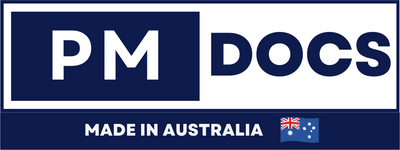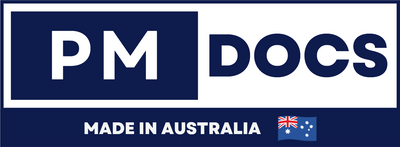Cost Of Certification In Australia GDPR Toolkit Explained
Introduction
The General Data Protection Regulation (GDPR) has transformed how companies manage personal data across the globe, encouraging stringent compliance measures. In Australia, organizations are increasingly recognizing the importance of aligning with these regulations, especially as data breaches and privacy concerns grow. Ensuring compliance not only protects businesses legally but also builds trust with consumers. However, one critical aspect that companies need to navigate is the cost of certification, which can vary widely based on several factors including the size of the organization, the complexity of data handling operations, and the specific GDPR toolkit employed for compliance.

Does GDPR Certification Apply To Australian Businesses?
Let's break down the essential points regarding the applicability of GDPR certification to businesses in Australia.
1. Understanding GDPR Certification
- GDPR certification is designed to demonstrate compliance with the regulation, establishing trust between organizations and consumers regarding data protection practices.
- Certification can be obtained through designated certification bodies, which ensure that organizations meet specific GDPR requirements.
2. Extra-Territorial Scope of GDPR
- One of the key features of GDPR is its extra-territorial application. This means that the regulation applies not only to organizations located within the EU but also to those outside the EU that process the personal data of EU residents.
- If an Australian business processes personal data of EU citizens—whether through selling goods, offering services, or monitoring behavior—it is required to comply with GDPR.
3. Applicability to Australian Businesses
- Australian businesses that interact with EU residents must assess their data handling practices to ensure compliance or risk substantial fines.
- Compliance with GDPR is not limited to obtaining certification; businesses must also implement necessary data protection measures and protocols.
4. Certification Benefits for Australian Businesses
- Obtaining GDPR certification can bolster an Australian business’s reputation in international markets and enhance customer trust.
- Certification can help organizations identify compliance gaps and improve their data protection strategies.
5. Challenges for Australian Businesses
- The complexity of GDPR can pose challenges for Australian organizations, particularly those unfamiliar with EU data protection standards.
- Differences between the GDPR and Australia's Privacy Act may require significant adjustments in policies and procedures to ensure compliance.
GDPR vs Australian Privacy Act: Certification Context Comparison
Here’s the comparison between GDPR and the Australian Privacy Act in terms of certification.
1. Certification Mechanisms
-
GDPR: Under Article 42, the GDPR promotes the establishment of certification mechanisms as a way for organizations to demonstrate compliance with its provisions. These certifications are intended to enhance accountability and provide data subjects with assurance regarding the handling of their personal data.
- Australian Privacy Act: The Australian Privacy Act does not explicitly outline a formal certification mechanism similar to the GDPR. Instead, it emphasizes self-regulation and encourages organizations to implement best practices and privacy impact assessments to ensure compliance.
2. Accreditation Bodies
-
GDPR: The GDPR mandates that certifications must be issued by an accredited body. These bodies are designated by member states and must meet specific criteria defined by the European Data Protection Board (EDPB). This structured approach aims to ensure a high standard for certification.
- Australian Privacy Act: There are no formal accrediting bodies for privacy certification under the Australian Privacy Act. Organizations may seek third-party certifications, but these do not carry the same level of recognition or regulatory endorsement as GDPR certifications.
3. Scope of Certification
-
GDPR: The GDPR certifications can cover various areas, including data processing practices, adherence to specific data protection principles, and organizational accountability. This allows a comprehensive examination of an organization's data handling practices.
- Australian Privacy Act: The scope of recognition for any certification under the Australian Privacy Act is limited, as the legislation does not enforce uniform standards or offer a structured framework. Instead, organizations are encouraged to adopt the Australian Privacy Principles (APPs) but without a formal certification process.
4. Purpose and Value of Certification
-
GDPR: Certifications under the GDPR serve multiple purposes, including fostering trust with consumers, improving data management practices, and potentially easing regulatory burdens. They are a method for organizations to demonstrate their commitment to data protection, which can be beneficial for business reputation and operations.
- Australian Privacy Act: While the Australian Privacy Act encourages best practices, the absence of a formal certification system may limit the perceived value of compliance. Organizations may still leverage self-assessments and audits to ensure they meet the necessary standards, but there is typically less external validation compared to GDPR certifications.
5. Impact on Organizations
-
GDPR: Achieving certification can lead to significant advantages for organizations operating within or engaging with the European market. It can enhance compliance credibility, assist with gaining customer trust, and potentially reduce fines in case of non-compliance.
- Australian Privacy Act: The absence of a structured certification process might result in varied levels of compliance across organizations. While businesses are urged to strive for good practices, there is less incentive for external validation, which can affect how compliance is perceived by stakeholders.
Breaking Down The Costs Of GDPR Certification For Australian Businesses
Here’s comprehensive breakdown of the expenses that organizations may encounter when pursuing GDPR certification.
1. Initial Consultation and Assessment Costs
- Before embarking on the certification journey, businesses should engage in preliminary consultations with legal experts or GDPR consultants.
- These professionals can provide a detailed assessment of the organization's current data handling practices relative to GDPR requirements. Costs incurred at this stage may range between AUD 2,000 to AUD 10,000 depending on the complexity of the organization's operations and the level of existing compliance.
2. Staff Training and Development
- To ensure compliance, staff members must be adequately trained in GDPR principles, data handling practices, and personal data protection. Companies often invest in training programs, whether through workshops, online courses, or training sessions with external experts. The cost for training approximately 10-20 employees can vary from AUD 1,500 to AUD 5,000, depending on the chosen method and provider.
3. Implementation of Compliance Measures
- Australian businesses may need to revise their data handling processes and technologies to align with GDPR requirements. This may include investing in new software, enhancing security protocols, or establishing internal controls for data access and management. Costs in this category can vary significantly, but businesses should anticipate spending anywhere from AUD 5,000 to AUD 50,000 based on their current systems and the extent of changes needed.
4. Documentation and Policy Development
- Businesses must create and maintain comprehensive documentation detailing their data processing activities, privacy policies, and evidence of compliance. Hiring legal advisors or compliance officers for this purpose can lead to additional costs, generally ranging from AUD 2,000 to AUD 15,000.
5. Ongoing Compliance and Monitoring Costs
- GDPR compliance is not a one-off activity; it requires ongoing efforts to maintain. Businesses should budget for recurring costs such as audits, compliance reviews, and potential updates to policies and procedures based on regulatory changes. Companies might expect to allocate around AUD 3,000 to AUD 10,000 annually for ongoing compliance measures.
6. Certification Fees
- Lastly, obtaining formal certification may involve fees charged by certification bodies. These fees can vary significantly based on the certification provider and the size of the organization. Companies may pay anywhere from AUD 5,000 to AUD 20,000 for the certification process itself.
Conclusion
In conclusion, obtaining GDPR certification in Australia is not merely an optional step for businesses; rather, it is an essential investment for those handling personal data of EU citizens. The costs associated with the GDPR toolkit and certification process vary significantly based on various factors, including the organization's size, the chosen toolkit, consultancy services, training, and audit needs.




